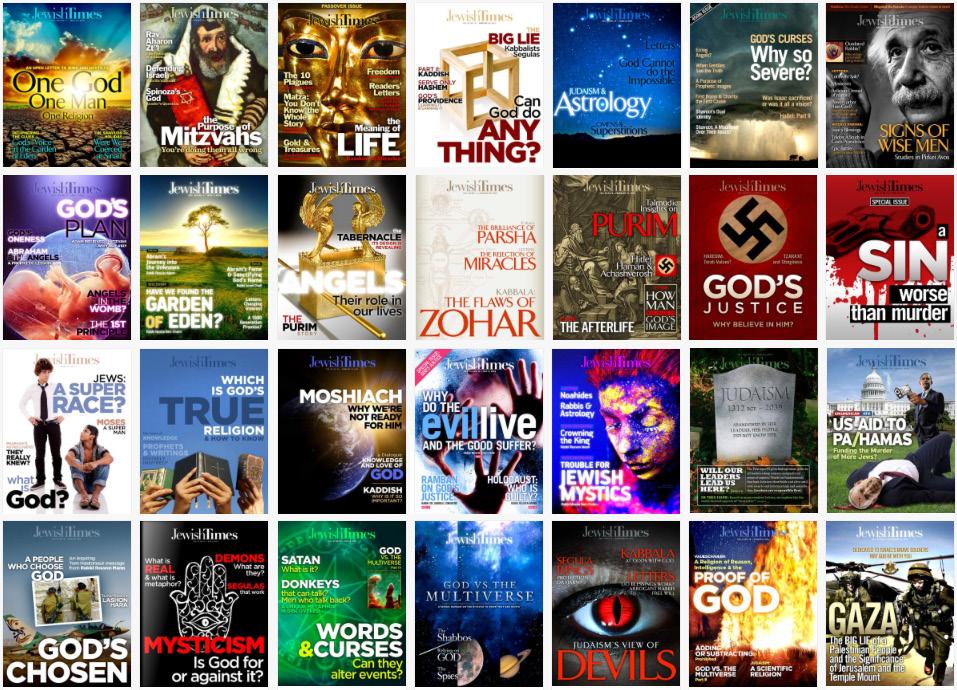


























THE JOURNAL ON TORAH THOUGHT | Please send letters and questions to: Comment@Mesora.org |
3 Nature vs Science
LETTERS How they di er? God didn’t make science.
5 Shlissel Idolatry
RABBI MOSHE BEN-CHAIM Torah’s rejection of amulets and its endorsement of Reward and Punishment
RABBI MOSHE BEN-CHAIM Lesson of the Firstborns
RABBI REUVEN MANN Judaism vs others
11 Homosexuality
RABBI BERNIE FOX Why Torah forbids it

Reward and punishment is how God judges mankind. God relates to us based on our intelligence, our morality and our Torah adherence. Amulets violate Torah. Idol worship used to be followed by the entire world, yet this did not validate it. Masses today bake shlissel challa, it’s no di erent.

MOSHE BEN-CHAIM
READER: In the JewishTimes you wrote: “The wisdom we derive from [science/nature] originates in faulty human language.” It is inaccurate to call the sciences “human inventions;” it is only the


application that is human. Every science has for its basis a system of principles. Man cannot make principles, he can only discover them. This knowledge is of divine origin. “Arithmetic must be discovered in just the same sense in which Columbus discovered the West Indies, and we no more create numbers than he created the Indians” (Bertrand Russell).
Revelation can mean a direct communication such as what happened at Sinai or it can refer to an inference of God’s presence. Both nature (God’s revelation through nature) and the Torah, are paths to God. We can know God by studying science or by reading the Torah. God is revealed through nature inasmuch that we can discover God through His works. Thus, both paths are paths to God.
Johannes Kepler said, “I give you thanks, Creator and God, that you have given me this joy in Thy creation, and I rejoice in the works of Your hands...I am thinking Your thoughts after You! Geometry is unique and eternal, a reflection from the mind of God.”
“Science without religion is lame, and religion without science is blind” (Albert Einstein). Torah and nature are bound together, as you yourself said, “God created both nature and Torah.” Psalm 19 understood this truth. There are two roads to God: the natural world (general revelation) and the written word—Torah—which records God’s words to the people of Israel (special revelation).
RABBI: I did not say nature is human invention, certainly it is God’s perfect work. I refer to man’s “perceptions” and “formulations” what we call “science”…that is flawed. God made nature perfect, but man made science and it is therefore flawed.
King David said that Torah is perfect, he did not say science (man’s interpretation of nature) is perfect. This is because science is man’s deductions, man’s formulations, which are flawed, as man’s mind is not God’s mind. But Torah is not man’s words, but God’s words. It’s perfect. Now, if God wrote books on nature, they would be equally perfect as Torah.
READER: I think you are trying to say how we use science is human.
RABBI: We must be clear: Nature is one matter, science is another. How we perceive science and formulate it, is a human fabrication containing flaws. It is unlike Torah, which is God’s words. For example, scientists used to think they saw the sun in real time. Now we know it takes 8 minutes for
sunlight to reach us; we are seeing the sun as it was 8 minutes ago. This human perception and thinking is evolving closer to the truth, but is never without error. Scientists suggest certain laws, and later, abandon them when error is detected. Does gravity work by pulling, or by warped space? You see, the conflict between Newton and Einstein demonstrates man’s imperfect perception and thought. Thus, scientific accuracy starts o with failure from the human perspective, while Torah is God’s perfect formulations. Only nature is God’s creation, but scientific principles are man’s creations, developed to explain, to interact with nature, to manipulate it and study it. But we don’t perceive natural laws as God sees it….explaining why scientists argue on each other.
With Torah, at least we have a starting point of God’s articulation, whereas in science we don’t have that: we start with man’s articulations. Science is therefore 1 step behind Torah. Again, does gravity work by pulling, or by warped space? This conflict between Newton and Einstein demonstrates man’s imperfect perception and imperfect thought. They cannot both be correct. So here, we have an example of how man’s see’s God’s perfect nature, but he errs when formulating what the law is…explaining scientists at odds. Had God written a book on science, it would be as perfectly accurate as Torah. But God did not impart to man His divine formulation of natural law, meaning science. Thus, man who deduced the formulations of how nature operates, formulated the sciences with errors, and many times scientists contradict each other. Although “nature” (physical reality) was created perfectly, “science” is man’s flawed deductions of what he actually perceives. Newton’s gravity and Einstein’s gravity were worlds apart. In fact, gravity works only one way. Have we discovered its final definition yet? I don’t know.
King David said God’s Torah is perfect, because it was God who formulated Torah’s language, sentences and ideas. But science is man’s deductions, man’s language and man ’s ideas. Torah is perfect, science is not. Yes, “nature” is perfect; that’s what God made, while “science” is man’s imperfect formulations, not God’s.
Rabbi Israel Chait said that Torah surpasses nature, in that nature does not o er man a path towards character perfection. Refining one’s personality and values cannot be learned from natural law. Only Torah o ers commands leading to human perfection. ■

 Rabbi Moshe Ben-Chaim
Rabbi Moshe Ben-Chaim
The need for security cannot justify falsehood…certainly idolatrous falsehoods. Peer pressure too must be of no concern when it violates reason and Torah. Sadly, many succumb to others baking shlissel challa; it’s painful to oppose friends’ beliefs, how ever wrong they are. But when falsehoods violate Torah fundamentals, the crime is unforgivable and you must be unconcerned with deviating from your closest friends. Must follow God, and not man.
Believing anything other than God and demonstrated natural laws have powers, is idolatry. Red bendels, rabbit’s feet, mezuzahs, black cats, and shlissel challas are objects upon which the masses project imagined power. However, Torah prohibits these, and natural law rejects them. Maimonides teaches that we are not to accept as true anything that is not detected by our senses, demanded by reason, or found in Torah (Letter to Marseilles). These objects all others if their ilk fail to provide validation as, 1) our senses do not witness any powers in them, 2) Torah does not speak of them and 3) reason tells us these are foolish practices. There is a grave sin: the sin of not using intelligence. God designed us with senses and intelligence, precisely that we use these faculties. Believing that objects have powers, rejects God’s will that we use our senses and intelligence.
King David says:
Their idols are silver and gold, the work of men’s hands. They have mouths, but cannot speak, eyes, but cannot see; they have ears, but cannot hear, noses, but cannot smell; they have hands but cannot touch, feet, but cannot walk; they can make no sound in their throats. Those who fashion them, all who trust in them, shall become like them. (Psalms 115:4-8)
Certainly man-made loafs of bread with no eyes, ears or mouths are useless.
God favored the patriarchs and matriarchs Abraham, Isaac, Jacob, Sarah, Rebecca, Rachel, and Leah. He favored Moses and Joshua, King David King Solomon. Throughout their lives, not one of them ever practiced the belief in amulets, omens, or superstitions. When they had needs, they prayed to God. And when Rachel was barren and desired children, and asked Jacob to give her children, he responded harshly, “Am I in God's place preventing you from pregnancy?” (Gen. 30:2)
Meaning that God is the only source of power. Jacob’s anger with Rachel was due to his passion that his beloved wife have the correct beliefs.
Reward and Punishment is one of the 13 Torah Fundamentals, which Maimonides says our rejection of results in the loss of our afterlife. Our good and upright actions earn us God's assistance, and our abandonment of God and Torah result in His abandonment of us. In this just system—the only system that exists—the belief in amulets and omens has no place, and rejects God's ways.
When we follow God’s Torah, which means exclusively to follow His commands, perfect our character and pray to Him, God satisfies our needs. Nothing else will improve our lives, including baking idolatrous loaves of bread. Such superstitions, in fact, distance ourselves from God, and from His assistance. Read more at: https://www.mesora.org/shlissel.html ■






“Consecrate to Me every male firstborn; human and beast, the first [male] issue of every womb among the Israelites is Mine” (Exod. 13:2).
Why doesn’t Moses immediately communicate this law to the Jews. Instead, Moses first commences an elongated intro:
And Moses said to the people,“Remember this day, on which you went free from Egypt, the house of bondage, how God freed you from it with a mighty hand: no leavened bread shall be eaten. You go free on this day, in the month of Abib. When God has brought you into the land of the Canaanites, the Hittites, the Amorites, the Hivites, and the Jebusites, which was sworn to your fathers to be given you, a land flowing with milk and honey, you shall observe in this month the following practice: 7 days you shall eat unleavened bread, and on the 7th day there shall be a festival of God. Throughout the 7 days unleavened bread shall be eaten; no leavened bread shall be found with you, and no leaven shall be found in all your territory. And you shall explain to your child on that day, ‘It is because of what God did for me when I went free from Egypt. And this shall serve you as a sign on your hand and as a reminder on your forehead —in order that the teaching of God may be in your mouth—that with a mighty hand God freed you from Egypt. You shall keep this institution at its set time from year to year.’” (CONT. ON NEXT PAGE)

Then Moses gives God’s command:
And when God has brought you into the land of the Canaanites, as [God] swore to you and to your fathers, and has given it to you, you shall set apart for God every first issue of the womb: every male firstling that your cattle drop shall be God’s. But every firstling ass you shall redeem with a sheep; if you do not redeem it, you must break its neck. And you must redeem every male firstborn among your children. And when, in time to come, a child of yours asks you, saying, “What does this mean?’” you shall reply, “It was with a mighty hand that God brought us out from Egypt, the house of bondage. When Pharaoh stubbornly refused to let us go, God slew every [male] firstborn in the land of Egypt, the firstborn of both human and beast. Therefore I sacrifice to God every first male issue of the womb, but redeem every male firstborn among my children. And so it shall be as a sign upon your hand and as a symbol on your forehead that with a mighty hand God freed us from Egypt.”
Maimonides teaches that the obligation to retell the miracles and wonders—“Sippure Yetzias Mitzrayim”—is derived from the above first quote, line 1: “Remember this day, on which you went free from Egypt” (Exod. 13:3). This verse is Moses’ response to God's command to instruct the Jews to redeem the firstborns. Why is retelling the Exodus derived from the command to redeem firstborns? What’s the connection?
We must trace back to the first instance of the firstborn’s significance; it was during Moses’ prophecy of the burning bush. Exodus 4:22,23 is God’s directive to Moses to warn Pharaoh:
Then you shall say to Pharaoh, ‘Thus says God, Israel is My first-born son. I have said to you, “Let My son go, that he may worship Me,” yet you refuse to let him go. Now I will slay your firstborn son.’ [1]
Ibn Ezra comments:
The ancestors of this nation were the first to serve Me. I therefore take pity on this nation as a father pities a son who serves him. You took him for a perpetual slave. I will therefore kill your firstborn son.
God’s message to Pharaoh is that Egypt has the wrong concept of who is prized. Egypt prized their elite’s firstborns, onto whom Egypt projected inherent elevated status, excluding firstborns of lower class citizens. But God said it was the Jew who is prized, as they serve
God. Unlike Egyptians, the Jew is monotheistic, he is God’s chosen to teach mankind. As Egypt wrongly enslaved the Jew, God threatened Egypt that without releasing them, God would kill the firstborns to underline their error. God would also kill the firstborn of Egypt’s lower-class to show Egypt that there is no distinction between elite firstborns or lower-class firstborns [2]. God’s plan was to elevate the firstborn Jew as teachers of truth, opposing Egypt’s firstborns spread of idolatry. Therefore, the role of the firstborn is integrally tied to teaching monotheism.
Howard Salamon explained why Moses responded to God’s command of redeeming firstborn with the command of retelling the Exodus: redeeming firstborns targets the spread of monotheism, and this is the core lesson of the plagues and the Exodus. Therefore, once commanded in redeeming firstborns, Moses told the nation to spread the Exodus story yearly, which teaches God’s unity; He is the sole power of the universe, and Egypt is wrong. This is the most vital concept and the role of firstborns is to teach this. Thus, as the goal of redeeming firstborns is that they spread Torah, when Moses received God’s command to redeem firstborns, he tied it to retelling the Exodus.
Moses continued...he recalls God’s “mighty hand” 3 times. He both opens and closes with that phrase. And he commands us in Tefillin too due to God’s mighty hand. This might expressed in killing firstborns resulted in our freedom; the previous 9 plagues did not free us. God positioned Himself as the sole, unopposed power in the universe. It was the killing of the firstborns that launched the Exodus. Our perpetual redeeming of firstborns is an eternal reminder that we owe God great thanks. For if God did not free us, today we would be slaves to Pharaoh, as we recite on Passover. But we need more frequent reminders than when we rarely have firstborns. Therefore, here, Moses also commanded us in Tefillin; these words above are written inside Tefillin. God’s freedom granted to us established God as the only force in the world; no Egyptian god stopped God’s plans. This the most crucial lesson to mankind—God’s mighty hand—disproved Egypt’s belief in multiple gods.
But we wonder: What is the unique feature in that final plague of firstborn Egyptian deaths? This question is compounded as this is the only plague to which the Jews must respond with thanks to God, namely by redeeming firstborns.
This plague demonstrated God’s complete knowledge of every member of mankind: He knows who is firstborn. And by sparing Jewish firstborns, God demonstrates the principle of reward and punishment. God further teaches

that He operates outside natural law, as no natural law selects firstborn Egyptian deaths. Natural laws are physical, whereas the order of o spring is not determined by nature. God determines which soul enters which body. Death of firstborns is similar to death of all people who wrote on paper “AB” and not “BA”; health is unrelated to the order of events, and is also unrelated to the order of birth. Nothing natural is shared by all firstborns. The lesson is that God alone controls life, and nature. Here we are required to o er thanks. God controls in a manner outside our observation or reasoning. This is God’s “mighty hand.” Might refers to unparalleled power; God is mighty as opposed to imaginary gods. God controls nature and does not work within its confines. This is the death of firstborns.
Our obligation to retell the Exodus miracles and wonders is one mitzvah, derived from “Remember this day, on which you went free from Egypt” (Exod. 13:3). But Maimonides speaks further:
Whomever does not speak of 3 matters on the evening of the 15th does not fulfill his obligation, and these are they: the Paschal sacrifice, matzoh, and bitter herbs. Sacrifice is due to God passing over our forefathers’ homes, the bitter herbs because the Egyptians embittered our lives, and matzah is due to our salvation. And all these matters are called Hagaddah (Laws of Chametz and Matza 7:5).
Maimonides derives this obligation from Exod. 12:26,27:
And when your children ask you, “What do you mean by this practice you perform?”
You shall say, “It is the Passover sacrifice to God, Who passed over the houses of the Israelites in Egypt when smiting the Egyptians, but saved our homes.”
As Maimonides already told us that retelling the miracles and wonders is on the 15th, telling us this date
again indicates these three matters are a di erent obligation. This is supported by him citing a di erent Torah verse, and also by calling these 3 matters “Hagaddah,” a term not applied previously to the discussion of miracles and wonders. Thus, we have 1 command of retelling the miracles and wonders, and another obligation, a discussion of Pesach, matzah and bitter herbs.
Maimonides says “Whomever does not speak of 3 matters on the evening of the 15th does not fulfill his obligation.” To which “obligation” does he refer? It cannot refer to retelling the miracles and wonders, as he uses a di erent verse. It must mean the obligation of “eating” these 3 foods. However, eating these foods alone does not fill the command; it must be accompanied by an explanation. The rest of the year, commands of eating—like sacrifices or sabbath meals—require simple eating, and that is the fulfillment of the command. But on Passover the command is not fulfilled by mere eating, but by discussing the mitzvahs’ reasons. On Passover, eating forms part of communication: Whomever does not “speak” of 3 matters.
Thus, Passover contains 2 themes: 1) communicating God’s “mighty hand” through retelling the miracles and wonders, and 2) God’s commands. In other words, we were 1) freed through His might, to 2) fulfill Torah commands. We were not freed for freedom alone, which the Jews wished to express by baking bread. God retarded the dough from rising precisely to avert the Jews from expressing identification with their Egyptian oppressors who enjoyed the luxury of soft bread. Carrying the dough out of Egypt on their proud shoulders [3] planning to bake bread, the Jews intended to identify with free Egyptians. But this expression of unqualified freedom was not God’s plan. Therefore, God thwarted the Jews’ plan to bake bread: rushing them out of Egypt the dough could not rise and became only matzah. The restriction of eating leaven reminds us of the Jews’ mistake to enjoy freedom detached from God. We were freed with the objective to follow God and Torah. Chametz and matzah are the reminders. ■
[1] In Moses’ initial meeting with Pharaoh, he communicated God’s message to free the Jews, or su er death of the firstborns, without mentioning the other 9 plagues. We can surmise that this was the goal of the plagues: to share monotheism by removing Egyptian firstborns spreading idolatry, and establishing firstborn Jews as teachers of monotheism. All other plagues had this as their goal and it was unnecessary to specify them at this first meeting.
[2] In similar fashion, God a icted Egypt with boils, which did not distinguish between the astrologers and the common folk, for the same purpose of rejecting any inherent “powers” claimed by the astrologers. They could not remove the boils. With the 10 Plagues, God rejected all Egyptian claims of polytheism, powers, astrology, and deities.
[3] Exod. 12:34
 PARSHA
PARSHA
This week’s Parsha, Acharei Mot (After the Death…) contains a fundamental principle of the Jewish religion. The verse states, “You shall guard my statutes and ordinances which a person shall perform and live by them; I am Hashem” (VaYikra 18:5). We understand that we must observe and execute the commandments, but what is the meaning of the injunction that we are to “live by them”?
There is an important Halachik teaching contained here. The question inevitably arises, how far must one go in adhering to the Mitzvot? What if one’s life would be endangered by his fulfillment of a particular Mitzvah?
Suppose, for whatever reason, the consumption of Matzah produced a negative e ect on one’s health, which could possibly engender a life-and-death situation. Should the person eat the Matzah and have complete faith that Hashem will protect him and that no harm could possibly come to one who is scrupulously carrying out G-d’s commands? Or should he act according to the advice of his physician, who has warned that eating the unleavened bread could have a deleterious impact on his health?
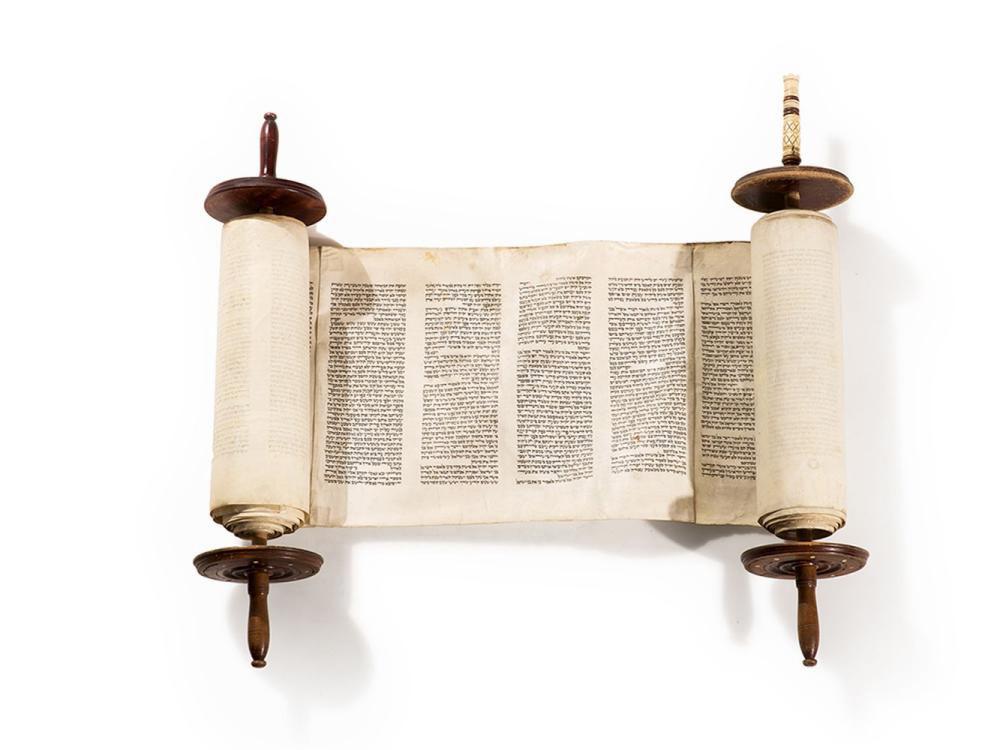
The Halacha is quite clear on this matter. One may not engage in an activity that jeopardizes life, even if this happens to be a commandment. This applies to all Mitzvot except for the three most egregious ones: idolatry, murder and severe sexual violations. However, concerning all the other obligations–even the most serious of them such as Shabbat and Yom Kippur–we are not permitted to endanger ourselves in order to fulfill our religious obligations.
Thus, one must desecrate the Sabbath by driving to a hospital if he is feeling unwell and there is a possibility (it need not be a certainty) that it might be fatal. [It should be noted that if one is sick, but it is clear that there is no risk of fatality, then he may not violate Shabbat to obtain treatment.] If the person is extremely pious and decides to assume the health risk and refrain from desecrating Shabbat, he commits a grave sin. And the same is true of Yom Kippur. As important as fasting for that entire day is, it must be avoided if it contains any threat to the continued existence of the individual.
Judaism is very committed to the well-being of the individual and the community and is adamantly opposed to religious zealousness which leads to self-endangerment. In the Laws of Shabbat (2:3) the Rambam states:
It is forbidden to hesitate before transgressing the Sabbath on behalf of a person who is dangerously ill, as it says “Which a person shall perform and live through them”–but not that he should die through them. We thus learn that the judgements of the Torah are not intended to be vengeance upon the world, but mercy and kindness and peace upon the world. Regarding the heretics who claim that violating the Sabbath to save a life constitutes desecration of Shabbat, the verse states, “I gave them harmful laws and statutes; through which one cannot live” (Yechezkeil 20:25).
Consequently, one who refuses to violate the Shabbat or any Mitzvah when it’s a matter of danger to life, is not only a sinner, he is also guilty of distorting the very essence of Judaism. He is saying that the Mitzvot have no regard for human life, but instead require a fanatic obsessive dedication to the performance of all the requirements, irrespective of the damage that such actions may bring about.
This is akin to Muslim fanatics like Hamas and ISIS, which demand human sacrifice in the glorification of their “god.” Clearly, these religions' purpose is not to enhance human existence and bring civilization to a higher level. Rather, man's life is unimportant, and his only purpose is to glorify his deity by dying for him. In complete contradistinction to Judaism, they glorify death and demean life. (I do not intend to include all versions of Islam in this categorization. There are many streams of theology in that faith which do strive for greater mutual understanding and peaceful relations.)
In my opinion, the words of the verse, “And you shall live by them” express the philosophy of the Torah. Being truly Jewish is not restricted to mere performance of the commandments. One must live according to the wisdom contained in the Mitzvot.
This means that the genuine religion of Torah contains a profound philosophy of life that illuminates all dimensions of one’s existence. Hashem’s Name is sanctified in the world when people behave in all their endeavors according to the wisdom, justice and compassion which are embedded in the Laws and teachings of the Five Books of Moshe.
May we merit to achieve this. Shabbat Shalom.
Questions/comments? Please email Rabbi Mann at: rebmann21@aol.com






The Torah prohibits various sexual relations.
“Do not lie with a male as you would with a woman. It is a disgusting act.”
(VaYikra 18:22)
These prohibitions are discussed in our parasha. One of the relationships that are explicitly mentioned is male homosexuality. In our modern society the morality of this prohibition is widely challenged. However, there can be no doubt that the Torah unequivocally prohibits this behavior. What are the objections raised against this prohibition? Among the criticisms is the claim that the homosexual is not evil. He cannot control his sexual preference. Perhaps, the preference is even genetically “hard-wired” into his personality. It is not fair to essentially deprive the homosexual of sexual expression.
Another more radical criticism is that sexual preference is subjective. It is inappropriate to label heterosexual behavior as proper and homosexual behavior as a perversion. Two people study a single piece of art. The beauty of the work inspires one. The other observer finds the work boring and mediocre. Is one correct and the other mistaken? Of course not! Each is
entitled to his or her individual opinion. Why should the issue of sexual preference be treated di erently? How can heterosexuality be regarded as more proper than homosexual preferences?
How do we respond to these issues? The first step is to realize that we do not apologize for the Torah. In other words, the Torah is the word of G-d. It does not derive its legitimacy from our acquiescence to its wisdom. Consider a simple analogy. The law of gravity is one of the Almighty’s creations. If a person jumps o a ten-story building, he will experience the e ects of gravity. These e ects are not influenced by the jumper’s attitude toward the law and its wisdom. Gravity is a reality! The laws of the Torah derive their reality from the same source as the law of gravity. Both are expressions of the Divine will. Neither needs our approval. In short, the Torah’s condemnation of homosexuality is clear. This means the behavior is prohibited regardless of our questions regarding the justice of the prohibition.
Nonetheless, we are commanded to study the Torah. The mitzvot are a source of wisdom. We do not study the Torah to justify its laws. We study the Torah to learn from it. What can we learn from the Torah’s prohibition of homosexuality?
PARSHA

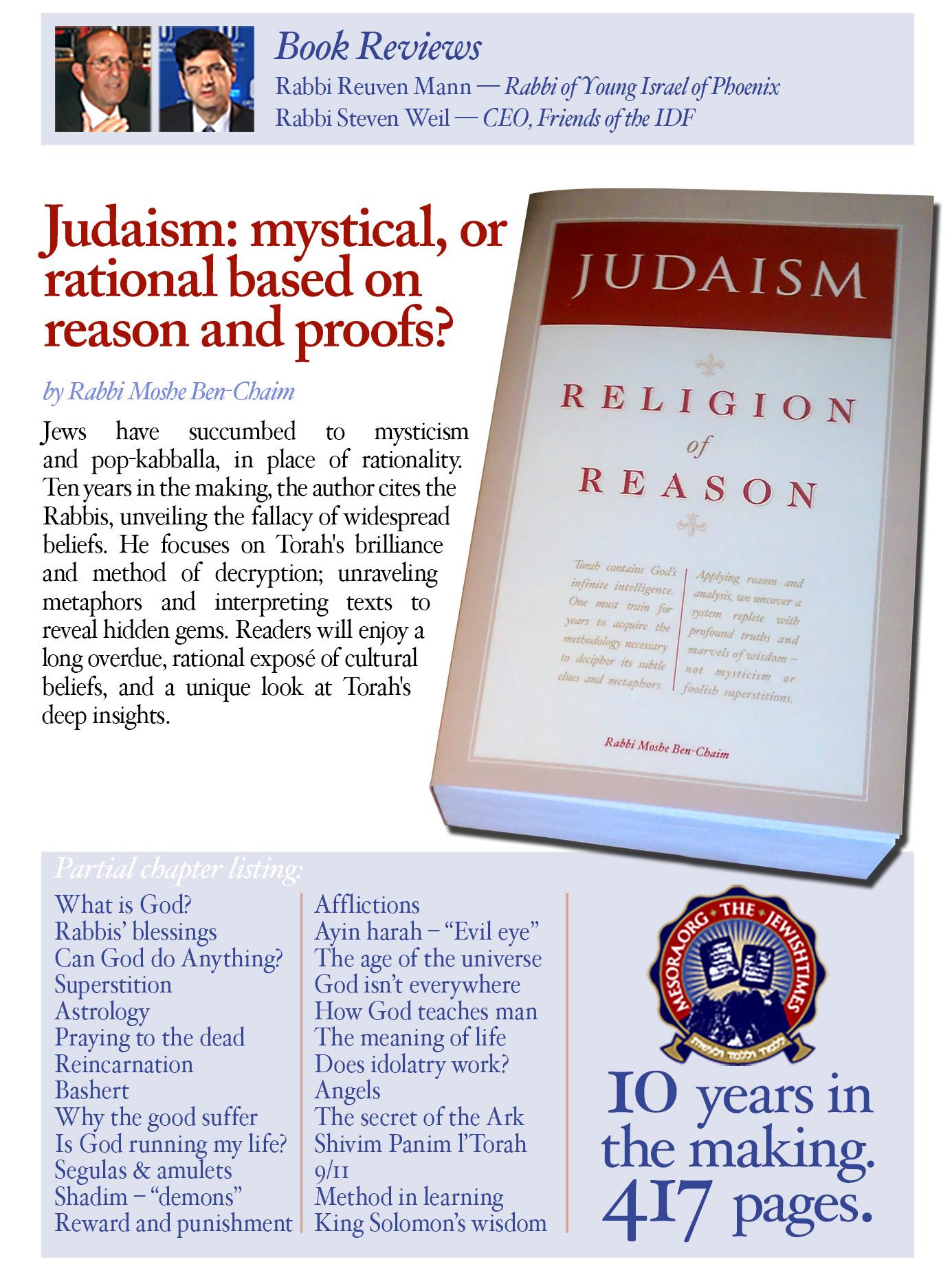


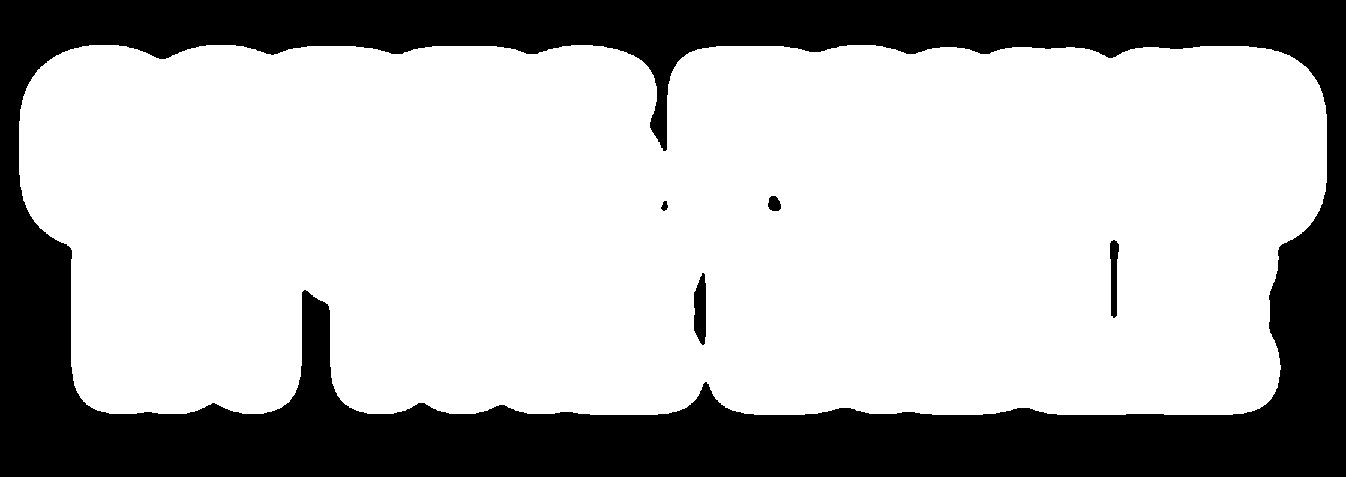
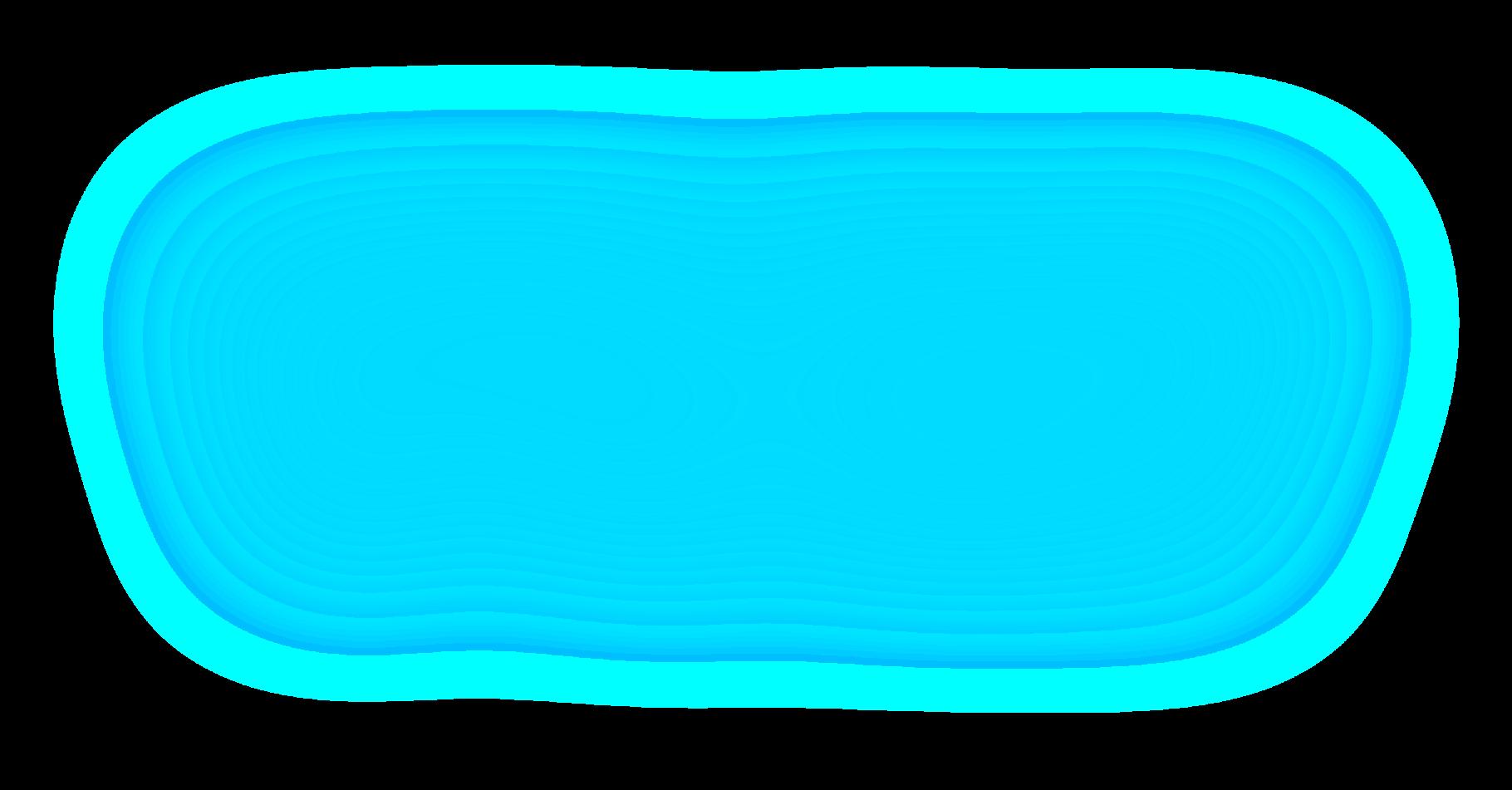
All books depict history, facts, theories, fiction or poetry. No book is coded with hidden messages beyond the words or patterns revealing marvels. But the Bible (Torah) was written by God, and is “coded.” The order of verses, use of certain phrases, apparent contradictions and other Biblical patterns are pur poseful clues to God’s wisdom.
This book unveils those patterns and shares the hidden messages.




Nachmanides notes that the prohibition of homosexuality is adjacent to the restriction against bestiality. He explains that these two mitzvot share a common theme. Both of these relations cannot result in conception and procreation. Nachmanides explains that the sexual desire is designed to operate in the service of procreation. This suggests that homosexuality and bestiality are perversions of the sexual drive.[1]
It does not follow that a sexual act that cannot result in pregnancy is immoral. There is no prohibition against sexual relations between a man and his wife that will not result in conception. For example, it is unlikely that a nursing mother will conceive. Nonetheless, this husband and wife may have relations.
Nachmanides’ position is that in the homosexual or bestial relationship the object of sexual desire is not suitable for the purpose of procreation. Therefore, these relationships represent a perversion of the sexual drive. In the case of a man and woman engaging in sexual relations that will not result in conception, the sexual desire is not perverted. The object of the drive is essentially suitable for procreation. Consequently, no perversion exists.
Rabbaynu Avraham ibn Ezra’s comments that the male and the female are created with a specific biological design. This design suggests that the male and female are the appropriate partners in the sexual act. Homosexuality ignores the basic biological design of the human species.[2]
It seems that according to Ibn Ezra, the will of the Almighty is expressed in the physical design of the human being. Therefore, homosexual relations represent an overt denial of the Creator’s will.
It must be acknowledged that the homosexual may be an innocent victim of his desires. His engagement in homosexual relations does not necessarily represent a desire to rebel against the Almighty’s plan. Also, we cannot assume that a specific homosexual repudiates the importance of procreation or the benefits of a heterosexual orientation. The homosexual may agree with the position of Nachmanides and Ibn Ezra but find himself unable to control his preference and desire. This is a tragedy. However, homosexual behavior is nonetheless prohibited. Every person is confronted with desires that the individual knows are wrong. In some cases, we may be unable to control our urge to act on these desires. This does not make the behavior correct. ■
[1] Rabbaynu Moshe ben Nachman (Ramban / Nachmanides), Commentary on Sefer VaYikra 18:22.
[2] Rabbaynu Avraham ibn Ezra, Commentary on Sefer VaYikra 18:22.


